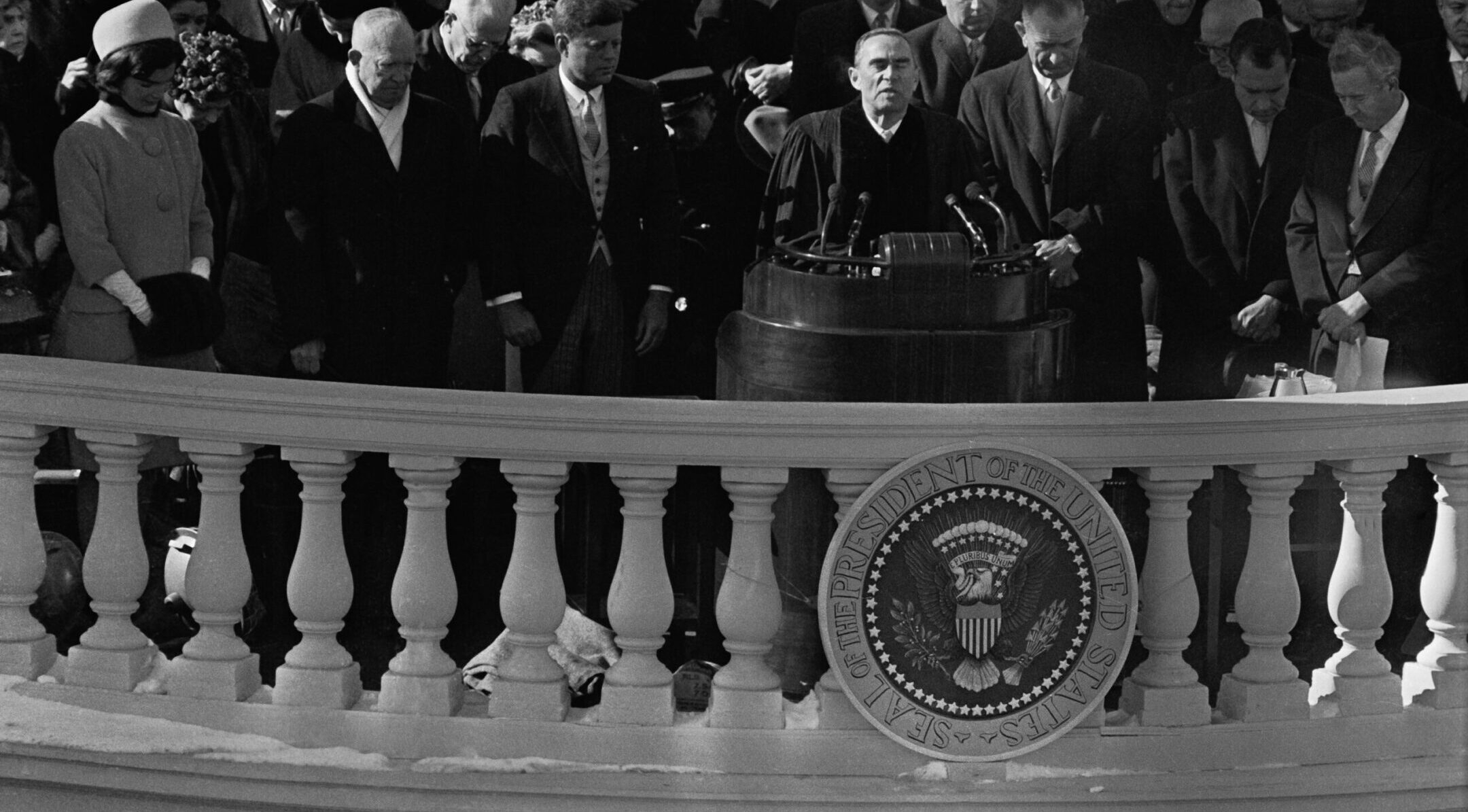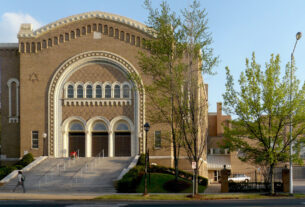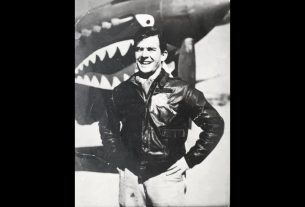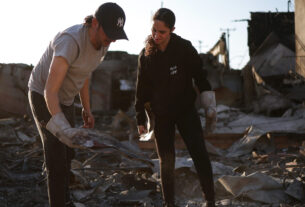In 1949, as Harry S Truman prepared for the first presidential inauguration since the end of World War II and the Holocaust and the creation of the state of Israel, he decided to expand a tradition and invite a rabbi to speak at his swearing-in ceremony.
Rabbi Samuel Thurman of United Hebrew Congregation in St. Louis, in Truman’s home state of Missouri, joined the Protestant and Catholic clergy who had been mainstays of inaugurations since 1937. Truman had gotten to know Thurman in part through the Masonic fraternal movement.
Since then, eight other rabbis have spoken at inauguration ceremonies, with a ninth — Ari Berman of Yeshiva University — scheduled to take the stage Monday for Donald Trump’s second inaugural.
No women rabbis have spoken at an inauguration, but many more rabbis have spoken at a prayer service held before the formal ceremony; in 2021, during the pandemic, Sharon Brous of IKAR in Los Angeles and Sharon Kleinbaum of Congregation Beth Simchat Torah in New York City spoke during a virtual service.
Here’s a rundown of the rabbis who have participated in a quadrennial American tradition.
- 1949: Thurman’s prayer at Truman’s inauguration clocked in at an unusual four minutes
- 1953: Rabbi Abba Hillel Silver spoke at the inauguration of Dwight David Eisenhower. Silver, who led an Ohio Reform congregation, was best known for his vocal advocacy of Zionism before the creation of Israel. He believed that without aggressive lobbying, the United States could not be counted on to support a Jewish state — to the extent that his ties with the Truman White House had grown tense.
- 1957: For his second inauguration, Eisenhower invited Rabbi Louis Finkelstein, chancellor of the Jewish Theological Seminary of America, the Conservative movement’s rabbinical school, to deliver a prayer. We reported at the time:
Immediately before the actual swearing in of Mr. Eisenhower, Rabbi Finkelstein recited a prayer calling for Divine guidance, life, and vision for the President and Vice President Nixon, When the Rabbi completed the prayer, Mr. Eisenhower grasped his hand and pressed it warmly.
- 1961: When John F. Kennedy was inauguration, Rabbi Nelson Glueck, an archaeologist who was the president of Hebrew Union College, delivered the benediction.
- 1965: Kennedy’s successor after his assassination, Lyndon B. Johnson invited Rabbi Hyman Judah Schachtel, the leader of Congregation Beth Israel of Houston, to deliver an opening prayer. Schachtel was a “personal friend” of Johnson from Texas.
- 1969: For his first inaugural, Californian Richard Nixon tapped Rabbi Edgar F. Magnin, the head of Los Angeles’ Wilshire Boulevard Temple. Under his leadership, which lasted until his death in 1984, the synagogue expanded from 400 families to 2,500 — a fraction of its size today.
- 1973: For his second inaugural, Nixon turned to Rabbi Seymour Siegel, a professor at the Conservative movement’s Jewish Theological Seminary. Siegel, who had been an avid Nixon supporter, told (JEWISH REVIEW) at the time that the White House had provided him with accommodations so he could participate in the ceremony as it fell that year on Shabbat.
- 1985: No Jewish clergy participated in Ronald Reagan’s first inauguration in 1981, but in 1985, for his second, he widened the speaker list to include Rabbi Alfred Gottschalk, the president of Hebrew Union College. The head of HUC from 1971 to 1996, Gottschalk was later found to have harassed and assaulted women at the seminary, according to a 2021 report commissioned by the Reform movement.
- 2017: After a three-decade period in which no rabbis spoke at inaugurations, Donald Trump invited Rabbi Marvin Hier, dean of the Simon Wiesenthal Center to speak. Hier promised a prayer with a “21st-century ring to it” and said he had accepted Trump’s invitation, which drew protests because of Trump’s anti-immigrant rhetoric, in part because he was friendly with the parents of Jared Kushner, Trump’s son-in-law.
- 2025: For his second inaugural, Trump tapped Berman of Yeshiva University, marking the first time that the leader of an Orthodox institution will speak. Orthodox Jews delivered reliable support for Trump in his reelection bid.




